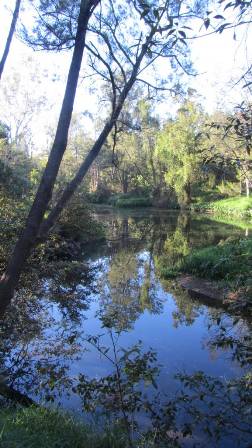The Moggill Creek Catchment is a unique natural asset. It is much valued by the local community and to the people of Brisbane.
It is home to a myriad of native plants, it offers essential habitat for an astonishing variety of wildlife and it provides a restorative and beautifully scenic backdrop to our daily lives.
Nurturing these precious 57.6 kilometres presents its own challenges. It entails significant and careful planning.
The MCCG is fortunate to have a dedicated crew of volunteers with considerable expertise who have, for the past 20 years, protected the environment and helped to create the vistas we enjoy today.
Their skills are diverse. Our volunteers contribute not only to amazing bushcare restorations, but they operate our nursery, co-ordinate information sessions and social events, manage the Cottage, maintain our social media and website presence and continue to maintain a financially viable, well administered group which is supported by over 500 members.
In 2016, the MCCG Management Committee updated its publication the “Review of Progress and Challenges from 1999 to December 2010”, together with its Strategic and Action Plans. The Committee's aim was to ensure that the group's achievements are recorded and monitored against its set objectives. It is also imperative to document and promote our plan for the future.
The review provides an interesting insight into the diverse challenges faced by the group. You can read it by clicking here: MCCG Review and Business Plan 2005-2008

(Note: This photo was taken in Section 3, Huntingdon on Tuckett by Jim Pope).

